Killing (2018)
Directed by: Shinya Tsukamoto
Written by: Shinya Tsukamoto
Starring: Shinya Tsukamoto, Sosuke Ikematsu, Yu Aoi
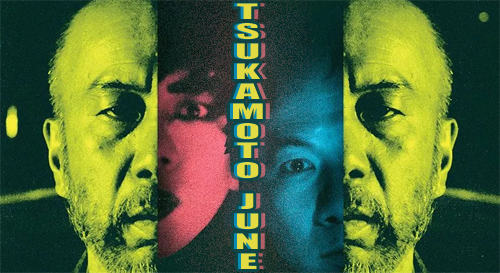
KILLING (2018) Available on demand and on Blu-ray from Third Window Films
Welcome to the edge of the blade. And welcome back Tsukamoto fans. In some ways the culmination of what had come before, Killing includes further development of the themes of manhood and violence found in Tokyo Fist. The harsh, occasionally cheap looking, digital photography from Fires on the Plain has become appropriately muted and visually interesting. Tsukamoto himself delivers one of his best performances, as a mature authority figure instead of a confused younger leading man. And sadly this is the final film scored by Chu Ishikawa who passed away before it was complete. The rapid percussion and hypnotic tones that accompanied so many fever dream narratives will be sorely missed. It’s a melancholy tale for this reason, but of course the contents of the story as a whole are pretty sombre.
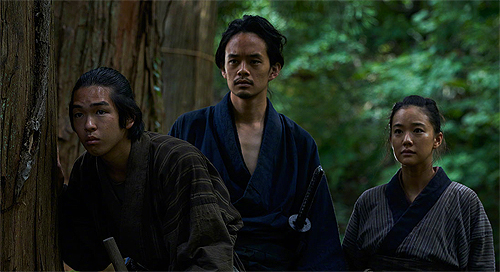
The stage is set by a fiery close-up of folded steel being shaped into a sword. The same image of a katana blade emerges from the calligraphy style title card, just in case you didn’t get the message. This is a story about weapons, as well as the will to use them. It’s also about the price of shedding blood, the impotence of masculine warriors, and what is means to have ‘worth’ and ‘pride’ as a hired killer. In between his work helping with a rice crop Tsuzuki (Sosuke Ikematsu) practices his swordplay with farmer Ishisuke (Ryusei Maeda). Two developments soon push him towards becoming a real fighter; the arrival of ronin Sawamura (Shinya Tsukamoto) and the appearance of a group of bandits. The thieves are surly and unwashed, and Sawamura appears benevolent and just. Tsuzuki is ready to serve a new master in Kyoto. But nothing is so straightforward.
This isn’t a story which includes any dance-like sword fighting flourishes. Without getting into too many sexual or psychological images (which the story certainly does include) it’s more about cowardice, obsession, and frustration. The first duel between Sawamura and an unnamed opponent is over in a flash, lacking the kind of excitement Ishisuke wants in his dreary life. But who was the man? He’s never discussed. Why is Sawamura obsessed with recruiting such inexperienced fighters? The details seem intentionally obscured. It’s also never a film which provides any tropes about heroism and glory. Under the surface there’s no chivalry or duty; it’s a murky grey affair covered in layers of muck. This is exemplified by Tsuzuki who is unable to commit to the adult affairs at hand and resorts to other means to release his urges.
He’s either ignorant of, or avoiding commitment to, the needs of local girl Yu (Yu Aoi) who is into him in a rather… combative way to say the least. That is, until things like illness and doubt make him less of a man in her eyes. Her affection, like Sawamura’s sense of duty, has its darker side. Soon they all show other character traits which take over when things go awry. There’s a sense that the first half of the story is all about naive youthfulness. The main trio are joined by this older, wiser, figure who tells them about his plans. They make poetic chit-chat about ladybirds and build wooden toys. It’s all very cosy and charming and they never talk about mortal wounds or lurid masochism. But the requirements of adulthood soon emerge, as does the cycle of violence in this medieval period. Tsuzuki may not be interested in entering the world of war, but soon he is faced with difficult choices.
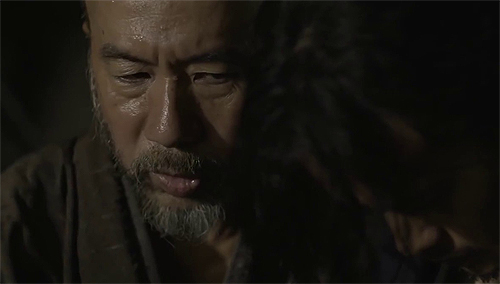
After laughing with the bandits, hanging out with his friends, and making moves to join Sawamura, things take a nasty turn. Tsuzuki wants to find a peaceful option, but those around him seem disgusted by such altruistic ideals. Repetitive acts of revenge and retaliation are soon all that anyone cares about. In another story his decision to fight with a wooden stick instead of a sword might be honourable, or quirky. Here it’s just a foolhardy mistake, as he can’t see that Sawamura has taken things beyond negotiation. There’s no grace in the chaos that follows, and both Yu and Ichisuke quickly learn the reality of life beyond their peaceful village. The central characters become obsessed with their own ideas of justice, but their paths aren’t heading to anything but tragedy. By the time that Sawamura says to Tsuziki ‘show me your worth,’ it’s clear what kind of test he has in mind.
Which I suppose is stating the obvious given the title of the film. But there’s a layer of death and decay creeping into the whole story as things progress. The echoing beats of the music become mixed with screaming sounds. The location shifts from a busy farm to a forest full of eerie shrines and corpses. Illness, both physical and psychological, starts to bleed into the situation. When Sawamura tells an opponent ‘reflect on your life’ there’s a brutality to his actions, betraying such a philosophical outlook. Soon any kind of introspection is lost and the dreams of ladybirds are drowned by a swirling rain storm. This sort of one-track mentality becomes compulsive as the story heads into its final sequence, and any traces of naivety are swept away. The players all confuse acts of violence for something with greater purpose, and it’s too late for them to regain what is lost in the process.
The result is an incredibly dark character piece, and probably the director’s strongest work in the 2010s. It’s still just as bleak as those prior releases, at least after the first act, but it’s more subtle and more sharply constructed. There’s never any flashy reveal of what is going on in Edo, there’s no hint of wartime spectacle. It’s about the smaller personal conflicts and their slowly expanding consequences. He even throws in some elements of class conflict to add another layer to the proceedings. It’s also only eighty minutes long, which goes to show that less can be more. I’d love to see a return to the industrial nightmares of old, or even to things like real film stock and hand animated special effects. But this more nuanced direction is also welcome.
Other articles in this series:



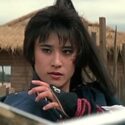
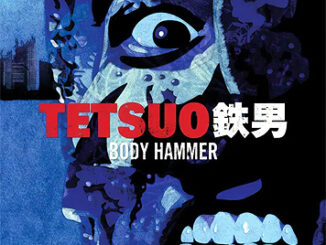

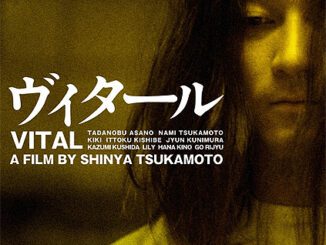
Be the first to comment